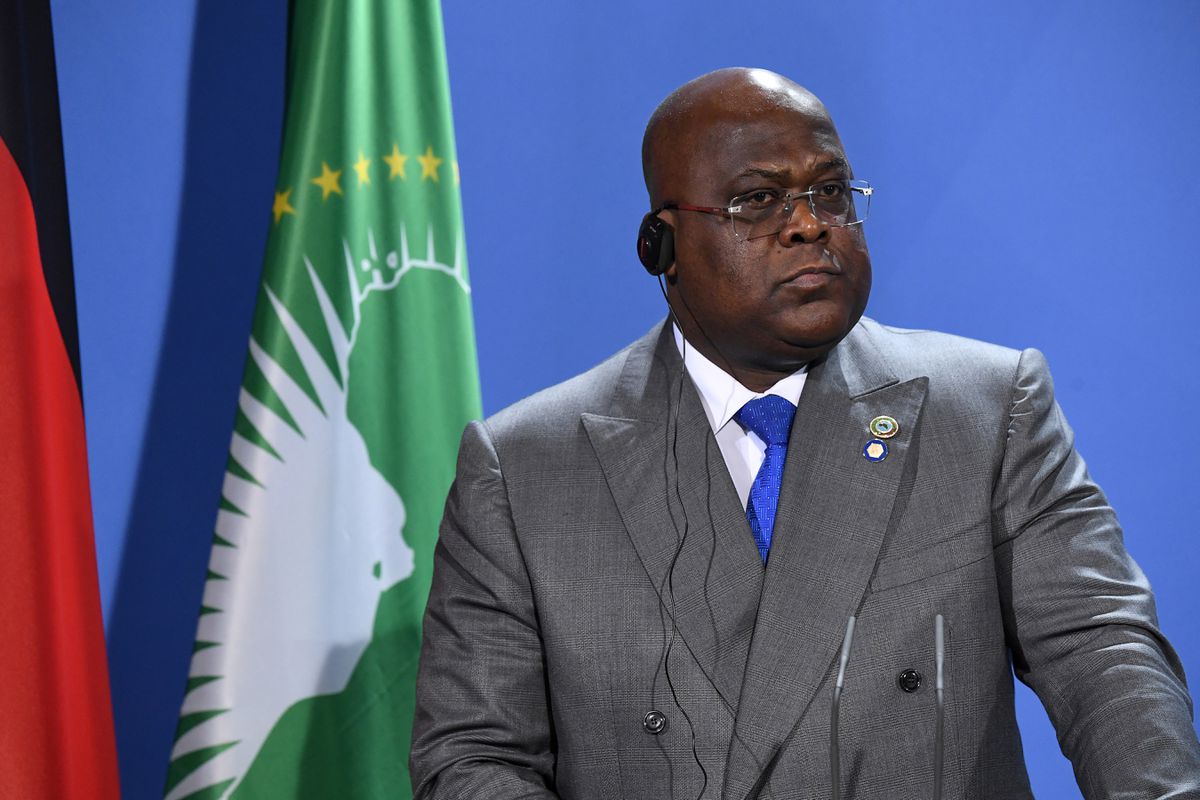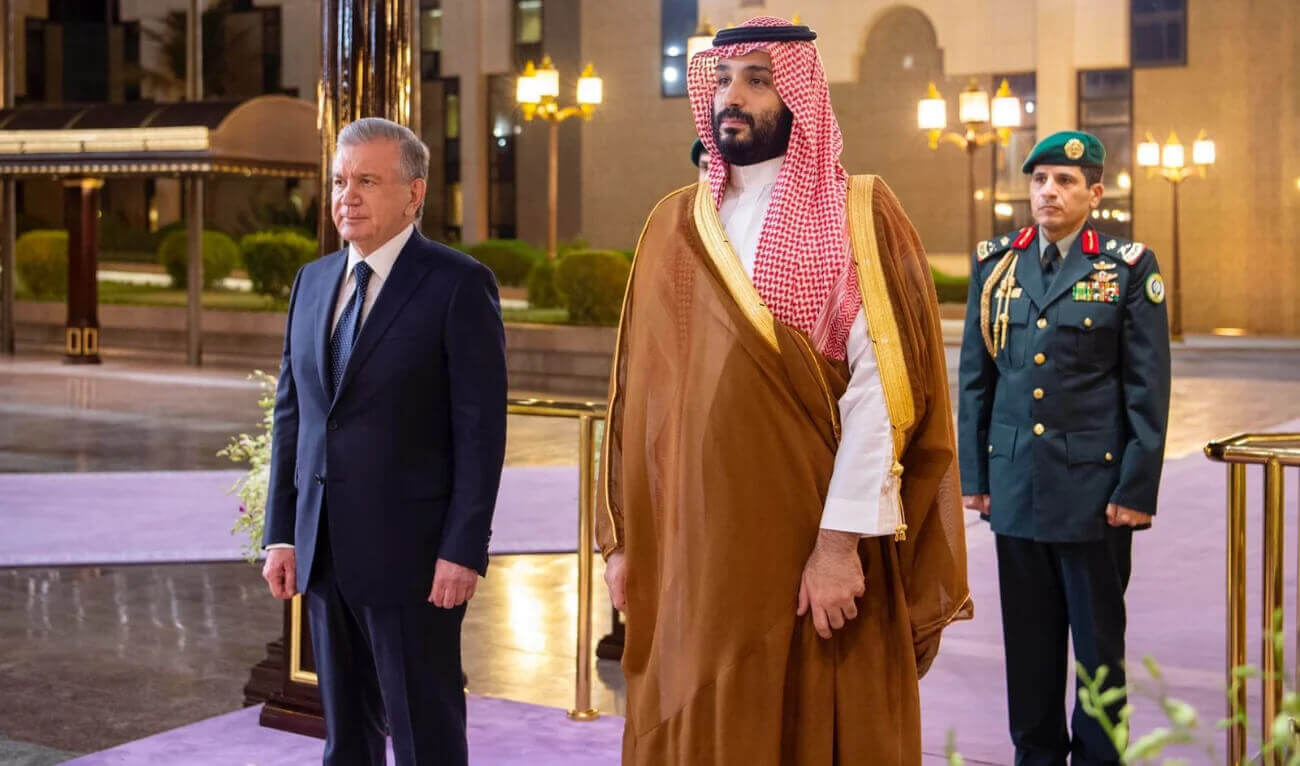South Asia
The Indian Home Ministry went back on Union housing minister Hardeep Singh Puri’s announcement declaring that the government would be providing flats to Rohingya refugees in Bakkarwala in New Delhi. Taking to Twitter, the Home Ministry clarified that the Delhi government had suggested the plan but the proposal was denied because the central government is already in the process of deporting the “illegal” Rohingya refugees. Thereafter, Puri clarified that the home ministry’s release presented the “correct position” of the government. [Times of India]
A devastating explosion hit a mosque in Kabul during evening prayers on Wednesday. While there has been no official statement on the number of casualties, media reports suggest at least 20 died in the attack. No group has taken responsibility for the blast yet, though the Islamic State is heavily suspected. [NDTV]
Central Asia and the Caucasus
Uzbek President Shavkat Mirziyoyev met with Saudi Crown Prince Mohammed bin Salman in Jeddah on Wednesday. The duo inked several investment agreements worth $12 billion in several key fields, including agriculture, sports, education, science, media, energy and technology. [Arab News]
Kazakh human rights activists have condemned their government for releasing an “insufficient” list of people killed during the January protests. They accused authorities of disrespecting the victims by showing only their last names and initials and demanded that the government include detailed information, including first names, age, and the exact time, place, and cause of death. On Tuesday, Kazakhstan for the first time published a list of those killed during the January riots. Officials put the death toll at 238, six higher than the number of deaths reported by media. [RFE/RL]
East and Southeast Asia
North Korea tested two cruise missiles on Wednesday. A defence ministry official from Seoul said that military authorities of the United States (US) and South Korea are analysing the missile’s “detailed specifications.” Cruise missiles are not part of the United Nations’ test bans on the country. However, both the US and South Korea have warned that the Kim Jong-un administration has already completed preparations to carry out a seventh nuclear test, the country’s first since 2017. [AFP]
United Nations (UN) special envoy to Myanmar Noeleen Heyzer said during her first visit to the country that Myanmar’s citizens “have the right to democracy and self-determination free from fear.” Referring to the junta government, she added that this would “only be possible by the goodwill and efforts of all stakeholders in an inclusive process.” [The Straits Times]
Europe
The British Office for National Statistics released data declaring that year-on-year consumer price inflation had surged to 10.1% last month, the highest rate of inflation witnessed by the country in 40 years. [Politico]
Polish Prime Minister Mateusz Morawiecki criticised France and Germany for running the European Union like a “de-facto oligarchy” as the “power is held by those who are the strongest.” He said that the “German and French voices” are “dominant” in the bloc, which he claimed faces “the threat of imperialism.” [DW]
Estonian Ambassador to Hungary Raul Toomas was summoned to the Ministry of Foreign Affairs and Trade on Wednesday after Estonian Minister of Foreign Affairs Urmas Reinsalu called Hungary’s position regarding the Ukraine war “extremely regrettable.” “Criticism coming from politicians of a country whose airspace is also protected by Hungarian soldiers and Hungarian aircraft is strange, as Hungary has participated in the defence of Estonia’s airspace on numerous occasions,” Hungarian Minister of Foreign Affairs and Trade Tamás Menczer remarked. [Hungary Today]
Latin America and the Caribbean
On Tuesday, El Salvador’s National Assembly extended President Nayib Bukele’s state of exception for a fifth time until mid-September. National Civil Police chief Mauricio Arriaza revealed that authorities have arrested 50,000 suspected gang members since March. Justice Minister Gustavo Villatoro, too, welcomed the extension, stating that the “results of the emergency regime have been overwhelming” and have had a “strong impact” on tackling gang violence in the country. [AFP]
On Wednesday, United States Special Agent in Charge of Homeland Security Investigations Anthony Salisbury highlighted a “marked uptick” in arms trafficking to Haiti and the Caribbean over the last few months, claiming that the US is “ramping up efforts to stem the flow of illicit weapons.” The illegal export of deadly weaponry has exacerbated the security crisis in Haiti, with gang violence and gun battles spilling over into Jamaica and the Bahamas. [Reuters]
Middle East and North Africa (MENA)
A survey conducted by a United States-based firm found that 49% of Iranian youth want to leave the country and live abroad, owing to reduced economic opportunities. 77% of those surveyed agreed that there would be no prosperity for Iranian youth in the future, and 55% blamed President Ebrahim Raisi’s government for ignoring the problems of young Iranians. [Iran International]
The Ethiopian government on Wednesday called for a formal ceasefire agreement with the Tigray People’s Liberation Front (TPLF) rebels “as soon as possible” to end the war and resume humanitarian aid to Tigray. TPLF spokesperson Getachew Reda dismissed Addis Ababa’s effort as “an obfuscation to hoodwink the international community” and blamed the Ethiopian army for provoking tensions with the TPLF. [Al Jazeera]
A 34-year-old Saudi woman was sentenced to 34 years in prison for liking and retweeting Saudi dissidents and activists. Salma al-Shebab, a mother of two and a student at the United Kingdom’s Leeds University, was arrested by Saudi agents while vacationing in her country. Al-Shehab was accused of promoting terrorism and seeking to cause public unrest in Saudi Arabia. She was also handed a 34-year travel ban, which will take effect following the completion of her jail term. [The Guardian]

North America
In a call with his Ukrainian counterpart Dmytro Kuleba on Wednesday, United States Secretary of State Antony Blinken condemned the Russian actions at the Zaporizhzhia nuclear power plant. He also reaffirmed that Washington “will continue to call for an end to all military operations at or near Ukraine’s nuclear facilities, the return of full control of these facilities to Ukraine, and Moscow to end its war of choice against its sovereign neighbour.” In Ukraine’s press statement, Kuleba revealed that “weapons were the focus” of the call, adding, “Military aid to Ukraine shortens the war and remains the best investment in the long-term security of Europe and the world.” [US Department of State, Ukraine Ministry of Foreign Affairs]
On Wednesday, Canadian Deputy Prime Minister and Minister of Finance Chrystia Freeland announced the disbursement of $450 million in loans to Ukraine through the International Monetary Fund to buy heating fuel before winter, bringing the total of Ottawa’s financial assistance to Kyiv to $1.95 billion this year. “It is Canada’s strong conviction that Ukraine must win this war to defend its sovereignty, democracy, and the rules-based international order,” Freeland asserted. [Government of Canada]
Oceania
Over two hundred families have been evacuated and a state of emergency has been imposed in Nelson, a city on New Zealand’s South Island, after the Maitai River burst through its banks. Search and rescue teams are now combing through flooded streets and suburbs to help stranded citizens. Nelson Mayor Rachel Reese called it a “one-in-100-year weather event.” [NZ Herald]
Over 200 of Australia’s biggest polluting facilities may have to cut down carbon dioxide emissions between 3.5% and 6% annually under Prime Minister Anthony Albanese’s climate action plan, which will take effect next July. Companies emitting lower than their baselines would be issued with credits, which they could sell to businesses that fail to stay within their emission limits. [The Guardian]
Sub-Saharan Africa
On Wednesday, the 16 heads of state of the Southern African Development Community kicked off the organisation’s 42nd Summit in Kinshasa to review progress in trade and regional security ties. The leaders will also discuss advancements in industry, agriculture, minerals, and supply chains to promote “inclusive and resilient economic growth” today, with Congolese President Félix Tshisekedi assuming the bloc’s rotating presidency from his Malawian predecessor Lazarus Chakwera. [Africanews]
Two days after the French forces withdrew from Mali, the military junta on Wednesday in a letter to the United Nations Security Council accused France of “flagrant violations of Malian airspace” and supplying arms and ammunition to terrorist groups with an aim of destabilising the country. The French Embassy denied the allegations and in turn pointed out that 53 French soldiers lost their lives during a nine-year security mission in Mali. [Al Jazeera]

